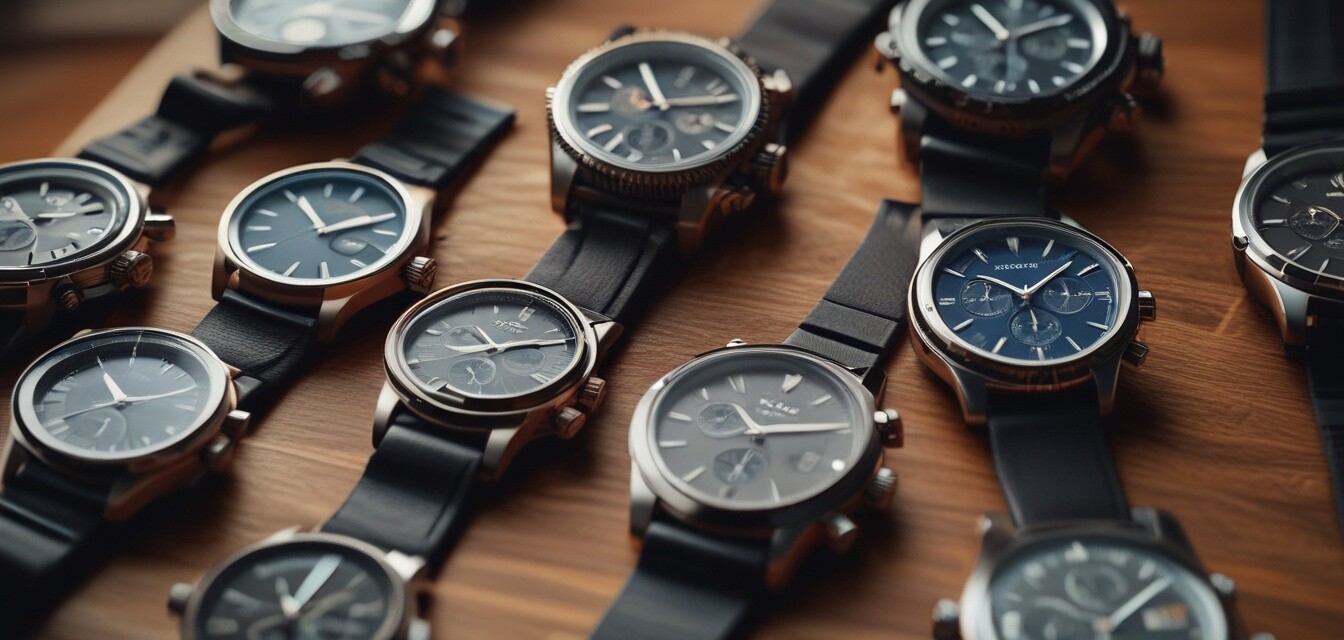
How to choose between analog and digital watches
Key Takeaways
- Analog watches offer classic aesthetics and craftsmanship.
- Digital watches feature modern technology and multifunctionality.
- Choosing depends on personal style, functionality, and occasion.
- Consider durability, maintenance, and battery life in decision-making.
- Explore brands like Rolex, Omega, and TAG Heuer to suit your taste.
Choosing between an analog and a digital watch can be quite a challenge, especially with the array of options available in the luxury watch market. Each style comes with its own set of benefits and aesthetic values that cater to different preferences and needs. This guide aims to equip you with the knowledge to make an informed decision that aligns with your lifestyle.
Understanding the differences
Before diving into the specifics of each type, it's important to understand the fundamental differences between analog and digital watches. The choice between the two primarily revolves around functionality, design, and personal style.
| Feature | Analog Watches | Digital Watches |
|---|---|---|
| Display Type | Hour and minute hands, traditional dial | Numeric digital display |
| Style | Classic and elegant | Modern and casual |
| Functionality | Basic timekeeping | Multiple functions (alarms, timers, etc.) |
| Battery Life | Typically longer, mechanical options available | Varies; some require frequent battery changes |
Pros and cons of analog watches
Pros
- Timeless elegance and craftsmanship
- Generally more durable and less complex
- Often hold value better in long-term
- Mechanical movements showcase artistry
Cons
- Limited functionality compared to digital
- May require more frequent maintenance
- Can be harder to read in some lighting
Pros and cons of digital watches
Pros
- Multiple features: alarms, timers, etc.
- Highly readable in all lighting conditions
- Lightweight and usually more comfortable
- Often more affordable than analog counterparts
Cons
- Less stylish for formal occasions
- Technology may become outdated
- Plastics may not hold up like metals
Which style suits your needs best?
Ultimately, your choice between an analog and a digital watch should reflect your personal taste, lifestyle, and the occasions for which you'll be wearing the watch. If you prefer a sophisticated look or need a watch for formal events, an analog watch might be the perfect fit. However, if you are frequently engaging in sports or need a multifunctional watch for daily use, a digital timepiece may serve you better.
Brands to consider
While making your choice, consider exploring trusted brands known for their craftsmanship and quality:
| Brand | Description |
|---|---|
| Breitling | A luxury Swiss brand known for its precision and aviator watches. |
| Cartier | Renowned for its elegant designs and craftsmanship, ideal for formal occasions. |
| Hamilton | A blend of American heritage and Swiss watchmaking. |
| Hublot | Innovative designs that merge traditional craftsmanship with modern technology. |
| Longines | A historic brand that signifies elegance and precision. |
| Mido | Focuses on quality and functionality with stylish designs. |
| Movado | Known for its modern, minimalist style and the iconic Museum dial. |
| Omega | A luxury Swiss brand famous for its timekeeping and history with space exploration. |
| Rado | Innovators of high-tech ceramic, offering contemporary designs. |
| Raymond Weil | A luxury watchmaker emphasizing artistic design and craftsmanship. |
| Rolex | Arguably the most recognized luxury watch brand associated with prestige and durability. |
| TAG Heuer | A brand that merges high precision with a sporty image. |
Conclusion
Deciding between an analog and a digital watch should not be rushed. Take time to reflect on your lifestyle, needs, and personal style. Each watch has its own charm and functionality designed to make your life easier and more stylish. Whichever you choose, an informed decision will lead to a satisfying purchase. For more in-depth assistance, be sure to check out our Buying Guides.
Happy watch hunting!

